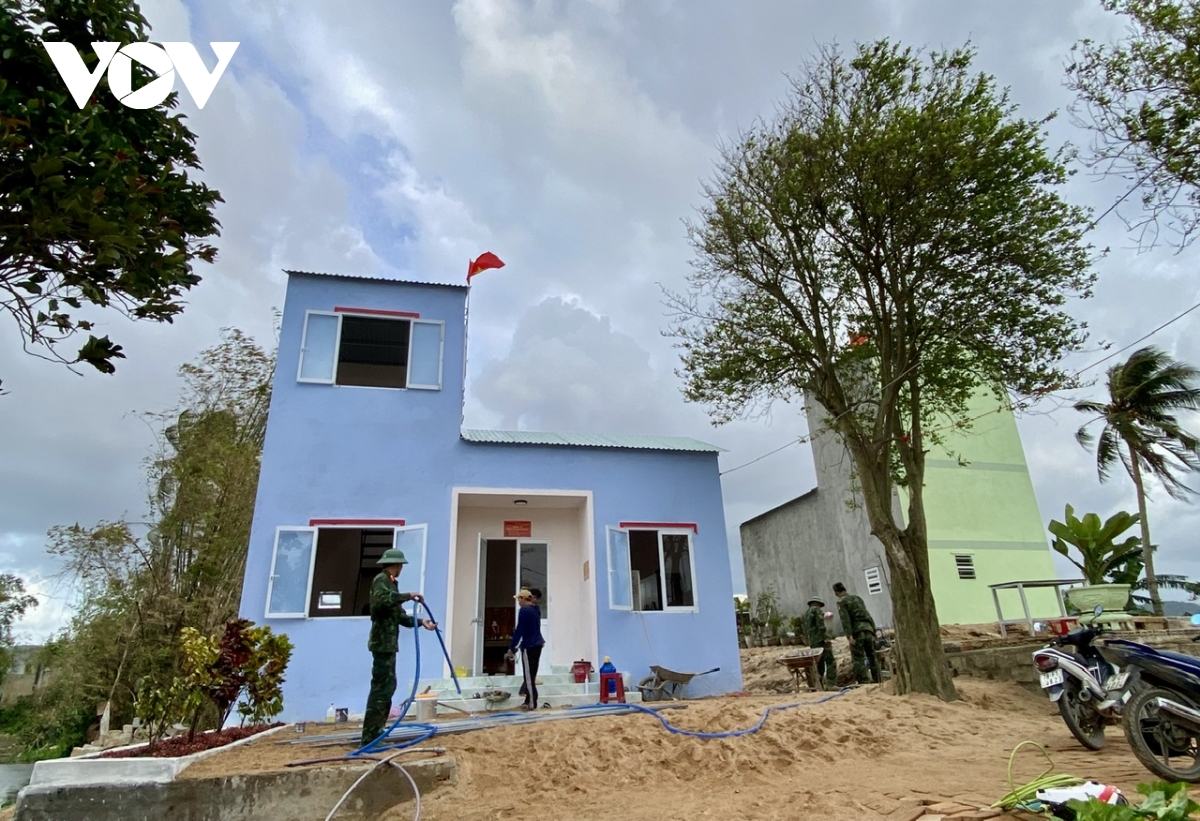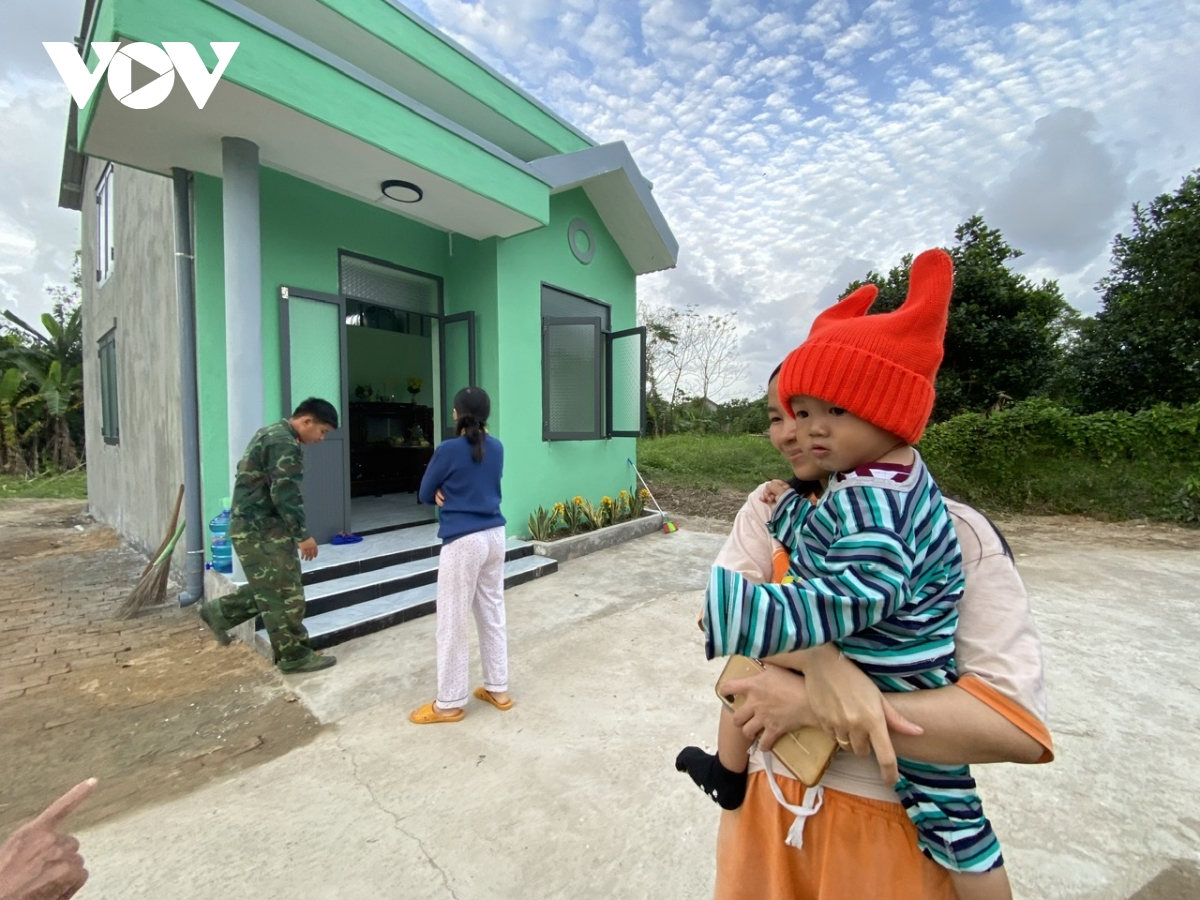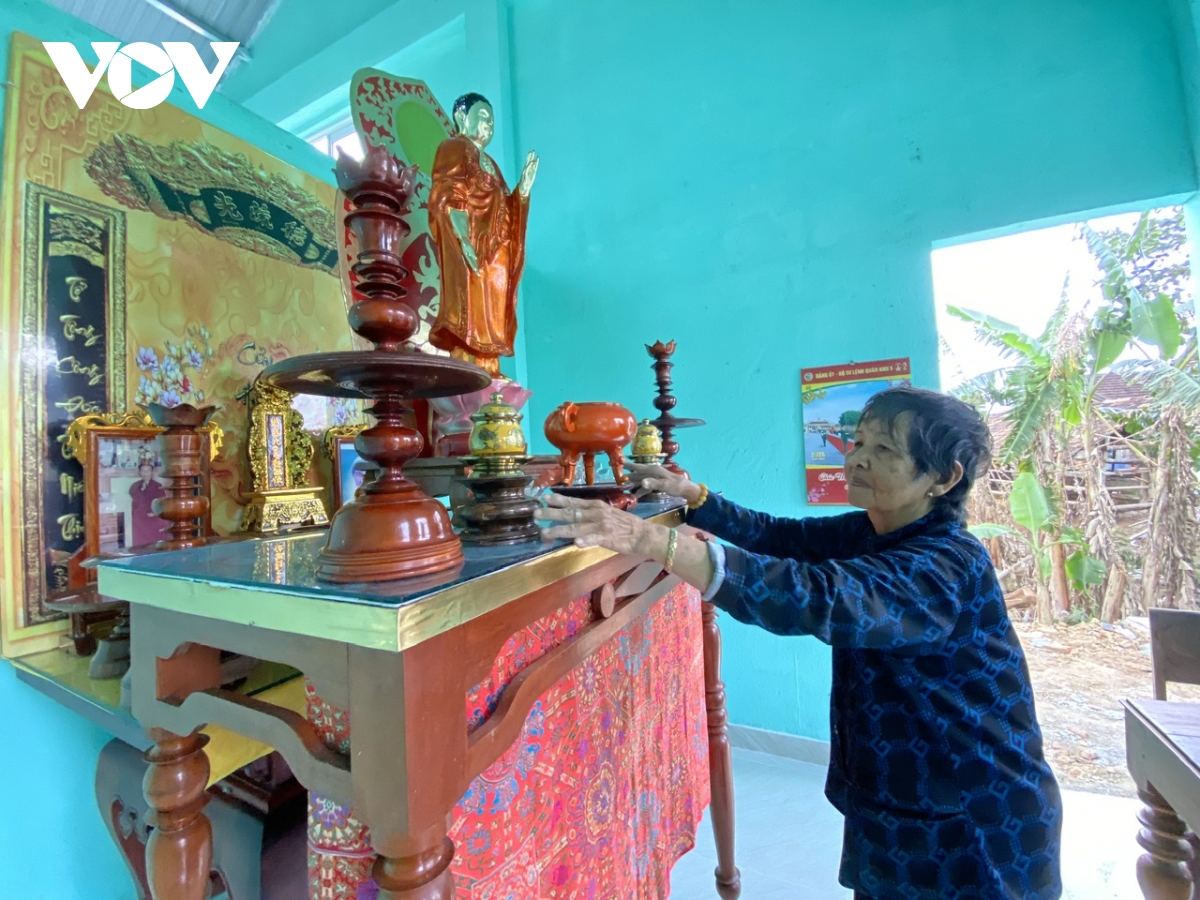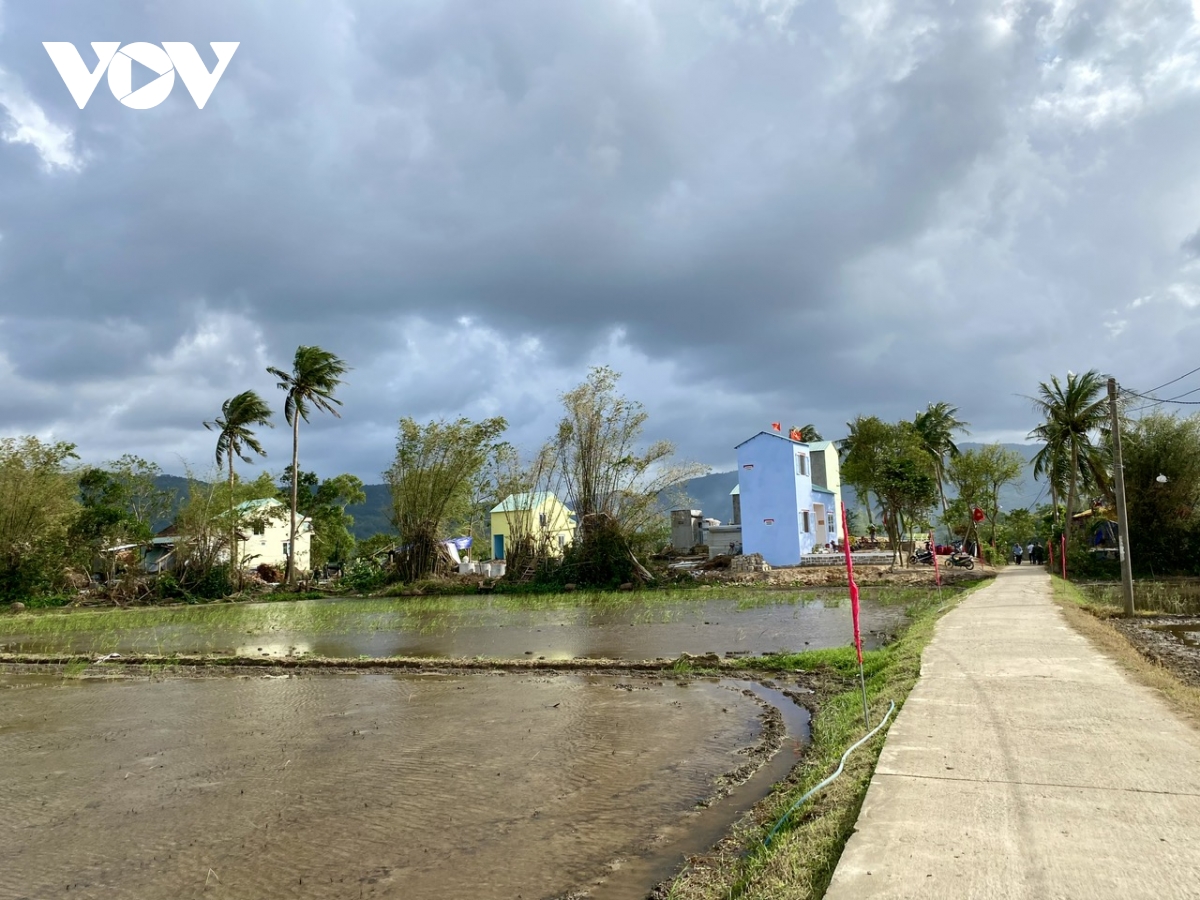Đợt mưa lũ lịch sử cuối năm 2025 đã gây thiệt hại đặc biệt nghiêm trọng tại nhiều địa phương khu vực Miền Trung và Tây Nguyên. Hàng nghìn căn nhà bị đổ sập, hàng chục nghìn căn nhà hư hỏng, cuộc sống của người dân rơi vào cảnh khó khăn, thiếu thốn.
Trước tình hình đó, trên cơ sở chỉ đạo của Trung ương Đảng, Thủ tướng Chính phủ Phạm Minh Chính phát động “Chiến dịch Quang Trung” với tinh thần thần tốc, đảm bảo người dân có nhà ở an toàn trước Tết Nguyên đán. Đây là quyết tâm chính trị mạnh mẽ, thể hiện rõ trách nhiệm của Đảng, Nhà nước đối với Nhân dân trong lúc khó khăn, hoạn nạn.
Thủ tướng Chính phủ Phạm Minh Chính khẳng định khi phát động Chiến dịch ngay tại tâm lũ phía Đông tỉnh Đắk Lắk: “Những thiệt hại vừa qua do bão lũ gây ra gọi là thảm hoạ thiên tai và phải ổn định cho các gia đình bị ảnh hưởng bởi thảm hoạ thiên tai này. Chúng ta phát động một 'Chiến dịch Quang Trung' mang tính thần tốc, táo bạo trong việc xây dựng nhà ở cho những gia đình mà bị cuốn trôi, bị sập đổ hoàn toàn. Họp lại phân công cấp uỷ, chính quyền, Quân đội, Công an, thanh niên, phụ nữ… làm gì, tất cả hệ thống chính trị phải tập trung vào để Nhân dân có nhà ở”.

Thủ tướng Chính phủ Phạm Minh Chính khảo sát thực địa, động viên Nhân dân và lực lượng tham gia, đồng thời phát động "Chiến dịch Quang Trung" ngay tại tâm lũ tỉnh Đắk Lắk.
Ngay sau khi Thủ tướng phát động, “Chiến dịch Quang Trung” đã được triển khai thần tốc. Trên khắp các công trường xây dựng nhà ở vùng lũ, hình ảnh cán bộ, chiến sĩ Quân đội nhân dân, Công an nhân dân ngày đêm bám địa bàn, vượt nắng thắng mưa, lội bùn sâu, gánh từng bao xi măng, từng viên gạch, thi công cả ban ngày lẫn ban đêm đã trở thành biểu tượng đẹp của chiến dịch.
Trung tá Vũ Dũng Chính, Lữ đoàn trưởng Lữ đoàn Tên lửa bờ 682, Vùng 4 Hải quân, cho biết, xác định đây là nhiệm vụ chính trị đặc biệt, cán bộ, chiến sĩ đơn vị quyết tâm hoàn thành sớm nhất để người dân có nhà ở ổn định. Những mái nhà hoàn thành hôm nay không chỉ là công trình xây dựng, mà còn là niềm tin, là tình cảm quân – dân được bồi đắp trong gian khó.
“Đối với tinh thần của bộ đội chúng tôi luôn xác định nhiệm vụ này xuất phát từ mệnh lệnh trái tim người lính và chúng tôi xác định mỗi người dân là người thân của mình. Qua đó, hành động khẩn trương xây dựng để Nhân dân an tâm và ổn định cuộc sống”, Trung tá Vũ Dũng Chính chia sẻ.

Những ngôi nhà mới được hoàn thành trong "Chiến dịch Quang Trung", thể hiện tinh thần “thần tốc – quyết liệt – nghĩa tình” của các lực lượng tham gia hỗ trợ nhân dân vùng lũ.
Cùng với dựng lại nhà ở, trong quá trình triển khai Chiến dịch, các đơn vị Quân đội, Công an còn giúp các địa phương khắc phục hàng trăm km kênh mương, dọn vệ sinh môi trường, sửa chữa trường học, nhà văn hóa, thu gom rác thải, hỗ trợ đời sống. Nhiều đơn vị còn trao tặng các vật dụng thiết yếu như bàn ghế, giường, nồi cơm điện, ti vi, tủ lạnh... để bà con có điều kiện sinh hoạt đầy đủ hơn trong ngôi nhà mới.
Sự phối hợp chặt chẽ giữa Quân đội – Công an – chính quyền địa phương, các lực lượng ở cơ sở, các tổ chức thiện nguyện và nhà hảo tâm đã tạo nên sức mạnh tổng hợp, bảo đảm chiến dịch được triển khai đồng bộ, hiệu quả.
Ông Lương Nguyễn Minh Triết, Bí thư Tỉnh uỷ Đắk Lắk cho biết, việc huy động hiệu quả nguồn lực xã hội, kết hợp với sự hỗ trợ của Trung ương, các lực lượng vũ trang đã góp phần đẩy nhanh tiến độ, nâng cao chất lượng các công trình nhà ở, bảo đảm an toàn, bền vững. Tỉnh Đắk Lắk đã cơ bản hoàn thành “Chiến dịch Quang Trung” với nỗ lực phi thường của cả hệ thống chính trị địa phương.
“Chiến dịch Quang Trung có thể dùng từ thần kỳ, trong vòng hơn một tháng đã hoàn thiện. Căn nhà của Đắk Lắk xây mới lên tới 170 triệu đồng chưa kể công của Bộ đội và các vật liệu khác hỗ trợ. Đây cũng là sự nỗ lực phi thường, trong đó có sự tham gia hết sức tích cực của các đơn vị lực lượng vũ trang, Quân đội, Công an để bà con sớm ổn định cuộc sống”, Bí thư Tỉnh uỷ Đắk Lắk chia sẻ.

Niềm vui của người dân vùng lũ trong ngày trở về ngôi nhà mới vững chãi, thành quả từ sự quan tâm, lãnh đạo của Đảng, Nhà nước và sự vào cuộc quyết liệt của Quân đội, Công an, chính quyền các cấp.
Những giọt nước mắt hạnh phúc, những nụ cười rạng rỡ trong ngày nhận nhà mới chính là thước đo chân thực nhất cho hiệu quả và ý nghĩa nhân văn sâu sắc của “Chiến dịch Quang Trung”.
Trong căn nhà mới vừa được bàn giao, ông Nguyễn Văn Bê, 70 tuổi, ở thôn Phú Phong, xã Hòa Thịnh, tỉnh Đắk Lắk xúc động: “Cảm xúc nhận nhà tôi rất bịn rịn, ý nghĩa. Bộ đội giúp xây dựng căn nhà chưa đầy 1 tháng đã hoàn thành, tôi rất cảm động. Tình cảm gắn bó, rất thân thiết, Bộ đội như là những người thân trong gia đình”.

Bà Trần Thị Lãnh (80 tuổi, xã Hoà Thịnh) sắp xếp bàn thờ trong ngôi nhà mới – hình ảnh bình dị nhưng xúc động, thể hiện ý nghĩa nhân văn sâu sắc của "Chiến dịch Quang Trung" đối với đời sống người dân vùng lũ.
Đến thời điểm này, gần 35.000 căn nhà hư hỏng đã được sửa chữa hoàn toàn; hơn 1.500 căn nhà bị đổ sập đã được xây mới. Các tỉnh Miền Trung và Tây Nguyên đã cơ bản hoàn thành “Chiến dịch Quang Trung”.
Chiến dịch là minh chứng sinh động cho sức mạnh thống nhất giữa ý Đảng – lòng dân, khi Nhân dân luôn được đặt ở vị trí trung tâm của mọi quyết sách, hành động. Việc hoàn thành chiến dịch là món quà đặc biệt tặng người dân vùng lũ trước Tết Nguyên đán Bính Ngọ 2026 và cũng là thành tích xuất sắc, thiết thực, ý nghĩa chào mừng Đại hội đại biểu toàn quốc lần thứ XIV của Đảng. Qua đó, tiếp tục khẳng định vai trò lãnh đạo toàn diện, tuyệt đối của Đảng; khẳng định bản chất tốt đẹp của Nhà nước ta – Nhà nước của Nhân dân, do Nhân dân và vì Nhân dân.

Toàn cảnh khu dân cư đội 3, thôn Phú Hữu, xã Hoà Thịnh đã được xây dựng khang trang sau "Chiến dịch Quang Trung", mang lại diện mạo mới và niềm tin mới cho người dân.
Thủ tướng Chính phủ Phạm Minh Chính nhấn mạnh khi yêu cầu các địa phương, các bộ ngành rút ngắn tiến độ "Chiến dịch Quang Trung" sớm hơn nửa tháng, từ ngày 31/1 sang ngày 15/1.
"19/1/2026 là Đại hội đại biểu toàn quốc lần thứ XIV của Đảng, chào mừng ngày này thì bà con phải có nhà trong những ngày diễn ra Đại hội. Ý nghĩa của Chiến dịch Quang Trung này quan trọng như vậy. Tôi đề nghị các địa phương rà soát lại, bởi vì ngoài mất nhà bà con còn mất đồ đạc, mất tài sản. Do đó, có nhà rồi nhưng phải có ti vi, tủ lạnh, có các vật dụng thiết yếu", Thủ tướng Chính phủ Phạm Minh Chính chỉ đạo.
Khi những căn nhà mới khang trang, vững chãi được hoàn thiện, “Chiến dịch Quang Trung” khép lại bằng niềm tin được củng cố, bằng tình quân – dân thêm bền chặt và bằng dấu ấn chính trị sâu sắc. Đó chính là “món quà đặc biệt” mà Đảng, Nhà nước dành tặng Nhân dân vùng lũ, đồng thời là lời khẳng định mạnh mẽ cho chặng đường mới, với niềm tin và khát vọng phát triển đất nước trong giai đoạn tiếp theo./.
Xem bài viết gốc tại đây